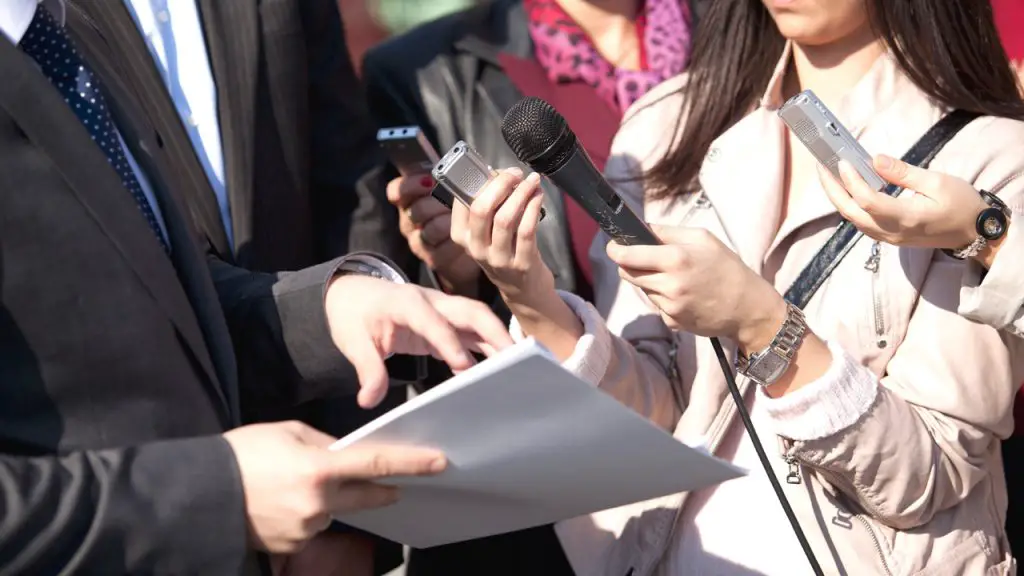In an increasingly connected society, the news and information niche once dominated by newspapers and cable television is becoming increasingly harder to monopolize, thanks to social media and blogging giving rise to a new form of information sharing.
Originally, social media and blogs used to simply complement traditional news sources, with most people sharing videos and articles they read. As online news became much more competitive with traditional print and TV news, though, radical news outlets began forming, some so ideologically extreme that they were borderline false. Others were completely fake, serving only as producers of clickbait in order to generate more views and make money through advertising.
The above provides a new challenge for respectable reporters and journalists, who are faced with a deluge of rumors and false stories traveling at the speed of broadband. It also doesn’t help that our current president constantly calls out media outlets, criticizing them as “fake news.”
While it’s no shock that politicians do not like the press, because it’s the job of the Fourth Estate to keep our leaders in check, many politicians prefer to ignore it. Meanwhile, President Trump has taken a fists-first rather than a hands-off approach toward the American press, for since the beginning of his campaign, he’s constantly been at war with the media.

The media has certainly tried to do its job in keeping President Trump on the hot seat, but often at the expense of seeming more biased. Trump’s base is known for its dislike of mainstream media, but they may not be the only ones in the country who distrust the media.
Gallup polls dating to last year show that four out of ten Americans trust mainstream media networks to provide them with the news. In some cases, even I agree. While the media has done a good job in exposing the Trump Administration and government in general, I fear the way in which they have done it is causing them to lose credibility, so here is a list of handy tips for the media to follow.
1. Stop Calling Everything an “Outrage”
When an extraordinary occurrence becomes routine, it no longer becomes extraordinary, just ordinary. Everything is horrific, everything is a shock and every single thing President Trump does is considered an outrage. The problem is when you call every action President Trump commits to be an outrage, it loses its shock value.
I am not saying the president never commits any outrageous actions, but while many of his actions are certainly unorthodox, to say the least, they don’t always warrant a breaking headline. Modern press should use more discretion in handling certain stories from D.C. to determine when something really is worthy of another eye-catching, hair-raising proclamation, or if it should just be another generic update in the news section.
2. Decide When Social Media Becomes Newsworthy
Social media is a great source of content for journalists and reporters, especially when such accounts are run by public officials. When the media seems to get too caught up in the weeds of Twitter or Facebook, though, they are sometimes taken advantage of by politicians who use simple bursts of information to derail and distract.

Quite often, President Trump’s tweets drive news cycles, especially at times when the previous topic was one putting him in the hot seat. By releasing a slew of insults or controversial statements, Trump often causes the media to shift their gaze from a more important issue. The media should not ignore social media, but they also shouldn’t let politicians use it to distract their attention and change news cycles.
3. Don’t Go After an Official’s Supporter Base
It is one hundred percent fine to grill a candidate or place a public official on the spot. After all, they did run for this job and deserve to be held accountable. One mistake widely committed throughout the 2016 presidential campaign, though, was the way the media constantly attacked supporters, especially Trump’s.
Most voters and activists are viewers as well, and by suggesting that a majority of Trump’s supporters are racists, xenophobes and right-wing nuts is not smart. Again, I am not saying none of Trump’s supporters could be classified in those categories, but to call a vast majority of voters insults only serves to reciprocally cause revolts and media strikes. In fact, it is because many of Trump’s supporters have felt so offended that they have turned to more inaccurate but sensational sources that twist everything into a conspiracy or the fault of the other side.
Above are just a few tips of mine, and I may be no professional or full-time journalist, but I am a consumer of mainstream news, and I know where the faults lie. There are a great many journalists in our nation who believe the truth and fighting to be impartial, but the need for sensational stories and partisan spins has caused a great exodus of readers to run into the arms of people and groups who care phenomenally less about the truth, preferring to peddle “alternate facts.”

















